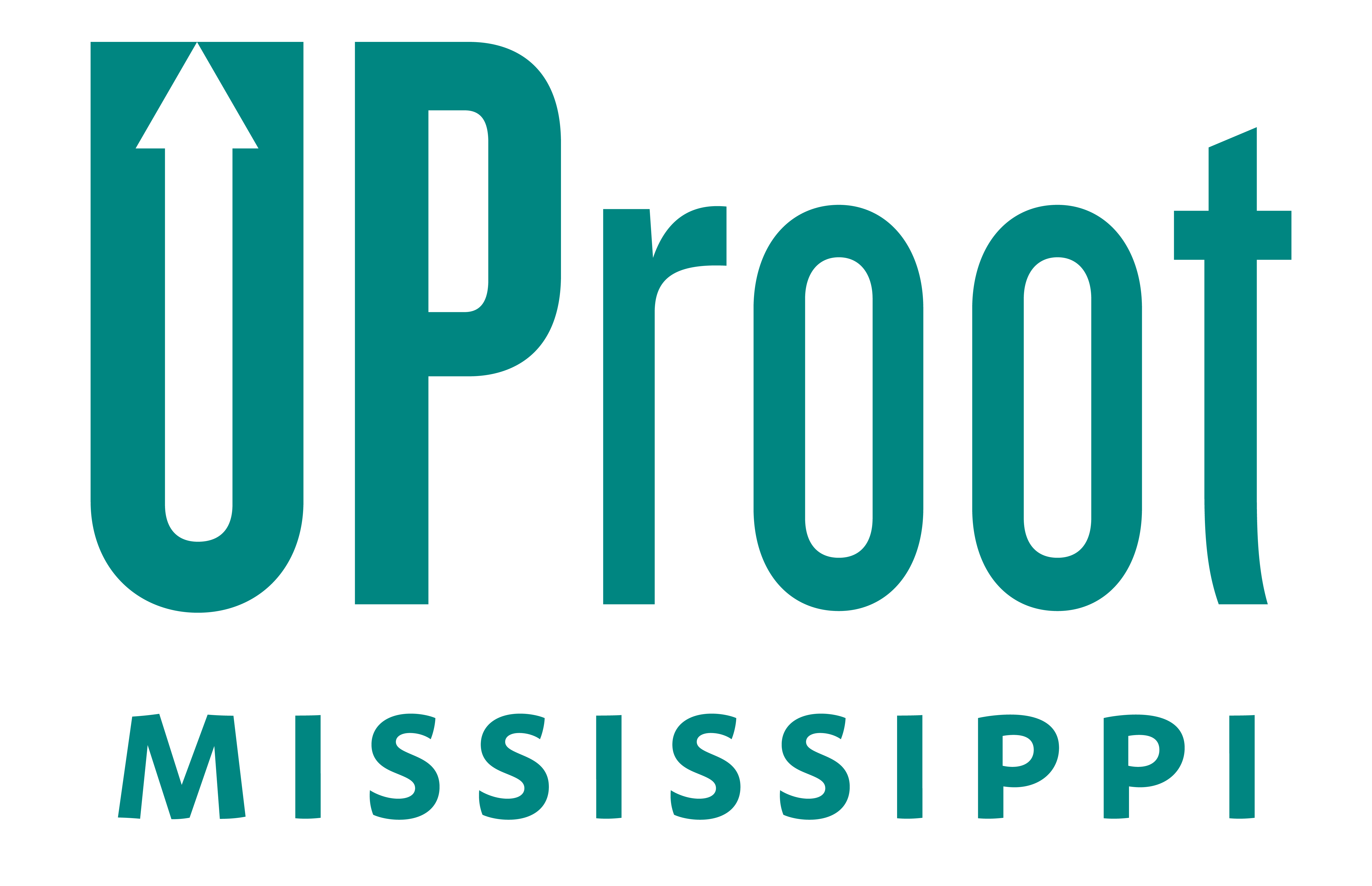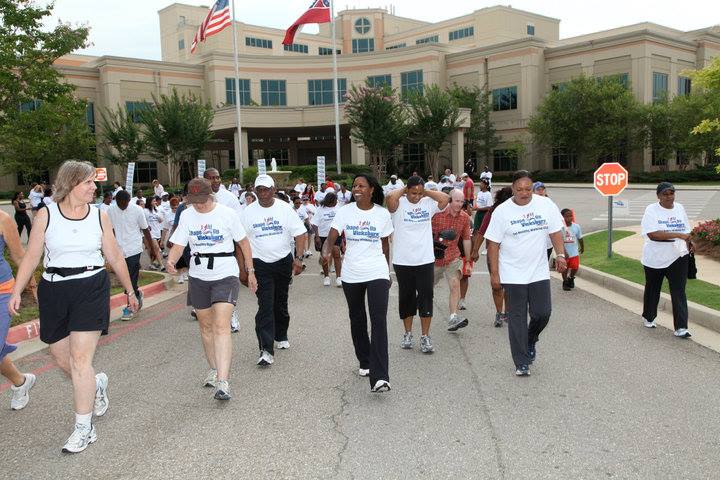Let’s work together to create an environment where everyone in Mississippi has the opportunity to live, access, and thrive in healthy spaces.
The social determinants of health (SDOH) are the conditions and environments in which people are born, live, learn, work, play, worship, and age. They affect a wide range of health, functioning, and quality-of-life outcomes and risks. SDOH have a major impact on people’s health, well-being, and quality of life.
According to Healthy People 2030, SDOH can be grouped into the categories of:
- Economic stability
- Education access and quality
- Health care access and quality
- Neighborhood and built environment
SDOH contribute to health disparities and inequities. In addition to promoting healthy choices,
public health organizations and their partners in sectors like education, transportation, and housing can take action to improve the environmental conditions of Mississippians, including people of color, tribal members, and the socioeconomically disadvantaged. The Mississippi State Health Assessment Improvement Committee (SHAIC) has identified SDOH as a priority area for Mississippi’s State Health Improvement Plan in order to, “create social, physical, and economic environments that promote attaining the full potential for health and well-being for all.”
Work Plan
Increase access to preventive health services
Increase the percentage of adults and children who get recommended evidence- based preventive health care by 10%.
- Monitor and track the utilization of age- appropriate preventive health care by categories of adults, adolescents, and children.
- Monitor and track proxy services and procedures for preventive health by race/ ethnicity and by insured status.
- Design a monitoring strategy to track the impact of barrier reductions on utilization of preventive health.
- Identify populations of concern based on data and partner with others to address as appropriate (includes Tribal preventive health services).
- Develop implementation strategies that include accountability for providers.
Measure the number of community organizations that provide prevention services.
Reduce the percentage of people under 65 years who are underinsured by 15%
Increase the use of telehealth to improve access to preventive health services by at least 10%.
- Adopt common definition of prevention services
- Create partnerships to measure/track the number of community organizations that provide prevention services
- Create and share individual and community educational resources on the importance of preventive health among partners
- Educate preventive health care providers on using evidenced-based culturally sensitive health education materials in their interactions with their clients
- Create a resource “hub” so that best practices in this area can be identified and shared.
- Support initiatives aimed at influencing policy makers to:
- Expand Medicaid coverage
- Expand other forms of insurance for low income people
- Provide education to the underinsured about the available options in MS
- Provide information on available telehealth services as they expand and become more available
- Encourage evaluation of telehealth services for effective utilization
- Develop partnerships to provide education to the public about the most effective use of telehealth visits
- Develop partnerships for education about consideration of the SDOH for providers of telehealth services.
- Advocate for the increase in broadband services to rural areas in Mississippi and appropriate use of funds to do so.
- Share best practices in the increased use of telehealth capacity in Mississippi.
Decrease preventive health barriers related to health literacy
Develop a measure for assessing personal health literacy in MS
- Partner with NDORI and others to review the 51 published strategies for evaluating health literacy.
- Adopt a working definition of health literacy for use in MS.
- Based on the review above, select one strategy to test while the MS metric for health literacy is being developed.
- Establish a mechanism for testing the chosen metric(s).
Decrease the proportion of individuals with disabilities who experience barriers to preventive health services
Increase the rate of developmental screenings services by 10%
- Partner with others to encourage developmental screenings in the 0-3 population.
- Educate providers and parents about the evidence-based practices associated with developmental screening.
- Assess the barriers to developmental screening.
Increase number of providers qualified in providing intervention services for ages 0-3.
- Partner with the Institutions of Higher Learning (IHL), to include training in pre- service curriculums, to encourage training in assessment and treatment of developmental delays in 0-3 population.
- Educate current providers in evidence- based assessment in treatment and services within the 0-3 population.
- Advocate for teleconsulting programs such as Project ECHO to provide training within this domain.
- Support post-graduate training programs in early infant and child health.
- Assess the feasibility of moving from a contract model to a salary- based employment model for early intervention services to encourage retention of providers.
- Assess the overall funding and infrastructure (including gaps) for early intervention services.
- Advocate for changes in the natural environment that can support early intervention.
- Assess the potential for addressing the stigma associated with developmental delays.
- Enhance technical assistance to child care facilities and head start centers regard early intervention.
Decrease the impact that implicit bias has on health
Measure the number of organizations with health policies that address implicit bias
- Adopt a common definition of implicit bias
- Work with partners to identify and create a tracking system for measuring the number of organizations that have enacted health policies that address implicit bias
- Work with partners to test organizational assessment tools based on the type of organization and identified needs
- Offer education regarding implicit bias and institutional racism
- Offer samples of policies that address implicit bias
Get Involved
- Book a speaker for your civic group
- Browse our success stories & create change in your community
- Download the Work Plan and look for opportunities to contribute
- Follow Uproot on social media & share your ideas
Partners & Stakeholders
COORDINATING CO-CHAIRS: Dr. Chigo Udemgba, Director, MSDH Office of Health Equity; Dr. Kina White, Director, MSDH Office of Community Health Improvement; and Durnene Farmer, Mississippi Band of Choctaw Indians Public Health Department
Mitchell Adcock, MS Center for Health Policy; Selma Alford, MSDH; Ivey Allen, Foundation for the MidSouth; Kaye Bender, MPHA; Hope Crenshaw,Teen Health MS; Valecia Davis, MSDH; Kathy Farrington, MSDH; Natalie Gaughf, UMMC: Breanne Hancock, MSDH; Diane Hargrove, MSDH; Nikki Harris, Morehouse School of Medicine; Joy Hogge, Families as Allies; Ravi K. Janumpally, UMMC: Starsha Jemerson, MSU; Ziva James,HUD; Phyllis Johnson,MS Board of Nursing; Daniel Le; BPSOS; Jerrie Macgruder, HUD; Dorothy McGill, IBS, Inc.; Ashley McKay, MSDH; Zonzie McLaurin, UMMC; Beryl Polk, MSDH; Callie Poole, MSU SSRC; Katherine Richardson, MSDH; Kathyrn Rehner-Sullivan, AHA; Danielle Seale, MSDH; Victor Sutton, MSDH; Karin Thurman, MSDH; Davy Trewolla, MSDH; Shari Veazey, Mississippi Municipal League; Victoria Walker, MSDH; Karen Winters, UMMC.

